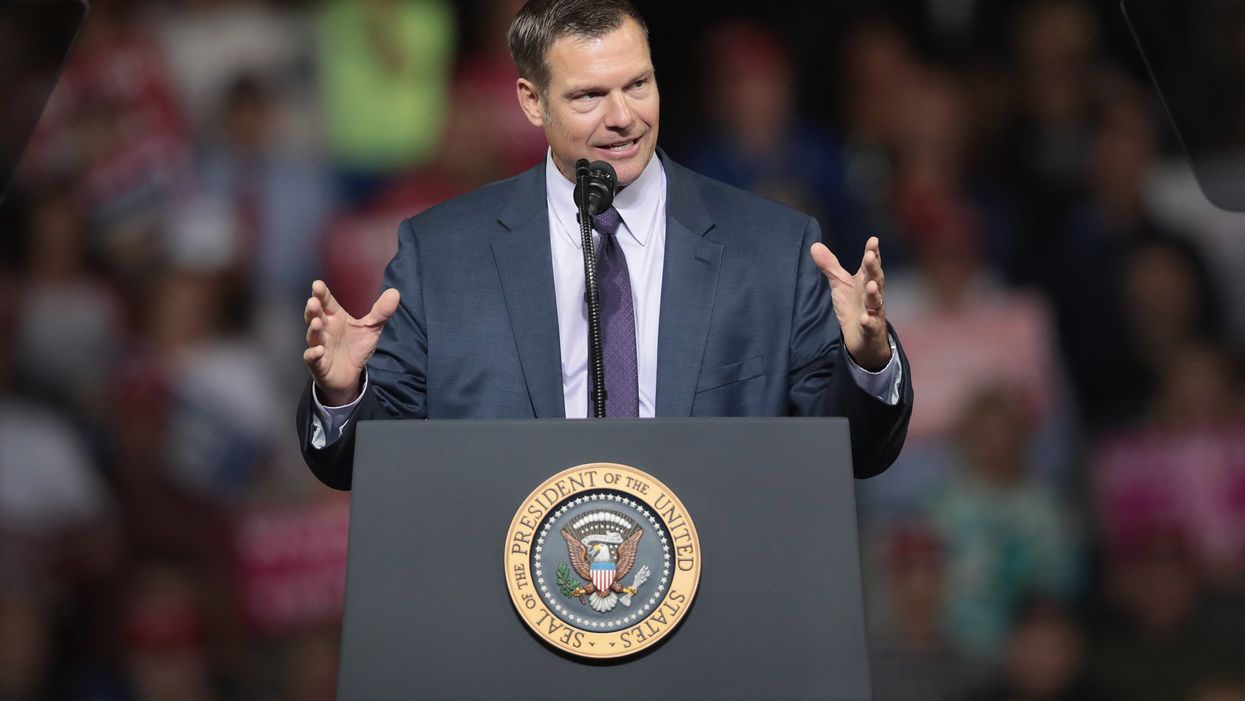Kansas may not require people registering to vote to provide documents proving their citizenship, a federal appeals court has ruled, striking down one of the most prominent Republican efforts to prove assertions of widespread election cheating.
The law was enacted in 2013 at the behest of Kris Kobach, the polarizing GOP figure who was then the state's top elections official and went on to chair President Trump' s commission to investigate voter fraud, which disbanded after coming up nearly empty.
Wednesday's ruling could bolster the prospects for other lawsuits by progressive groups and the Democrats. They are challenging election laws in more than a dozen states, many of them 2020 battlegrounds, arguing many rules were designed by conservative legislators to suppress the votes of racial minorities, college students and other reliably Democratic voters on the pretext of outsmarting an army of fraudsters that doesn't actually exist.
"Kansas wasn't able to muster evidence that the law in question here was necessary to prevent voter fraud, and I think that broader principle could have reverberations beyond the specific context of this case in a wide range of disputes over voting access between now and November," said Dale Ho, the American Civil Liberties Union's top voting rights lawyer.
Top GOP officials in Kansas said they may ask the Supreme Court to reverse the decision, in which the 10th Circuit Court of Appeals concluded the statute violated the Constitution's equal protection guarantee and the federal law regulating voter registration.
In the past two decades, the court said, 67 noncitizens at most registered or tried to register in Kansas — concluding that "incredibly slight evidence" of misbehavior was "statistically indistinguishable from zero" and did not justify preventing more than 31,000 applicants from registering, disenfranchising them during the five years the law was being enforced. (It has been blocked since 2018 because of the litigation.)
The state's interest in preventing such minimal fraud, the three-judge panel unanimously concluded, does "not justify the burden imposed on the right to vote."
The Kansas law is unique in requiring people to show a physical document such as a birth certificate or passport when applying to register. The state argued that is not too much of a burden and would assure the integrity of the voter rolls.
Mississippi is the only other state requiring would-be voters to similarly prove their citizenship, and that law only applies to naturalized Americans. It is being challenged in a separate federal lawsuit.
Kobach derided the decision as the "essence of judicial activism" and urged an appeal by his successor as secretary of state, Scott Schwab. He and Attorney General Derek Schmidt, a fellow Republican, said they were considering doing so.
The Democratic governor, Laura Kelly, has no say in the matter but urged them to give up. "If we have a problem with voting in the state of Kansas and across the country, it is that not enough people exercise their right," she said in a statement. "So I think eliminating any barriers to voting is a good thing."
Kobach, who was upset by Kelly in a bid for governor in 2018, is now seeking the state's open Senate seat in a competitive Republican primary.
"Make no mistake — this is a huge victory," said Rick Hasen, a law professor at the University of California, Irvine, and the author of "Election Meltdown," a sharp critique of the American electoral system.
The case produced "the most important voting trial of the 21st century so far because it was the chance for those like Kobach who claim that voter fraud is a major problem in the United States to prove that in a court of law under the rules of evidence, "The proof was woefully inadequate."




















